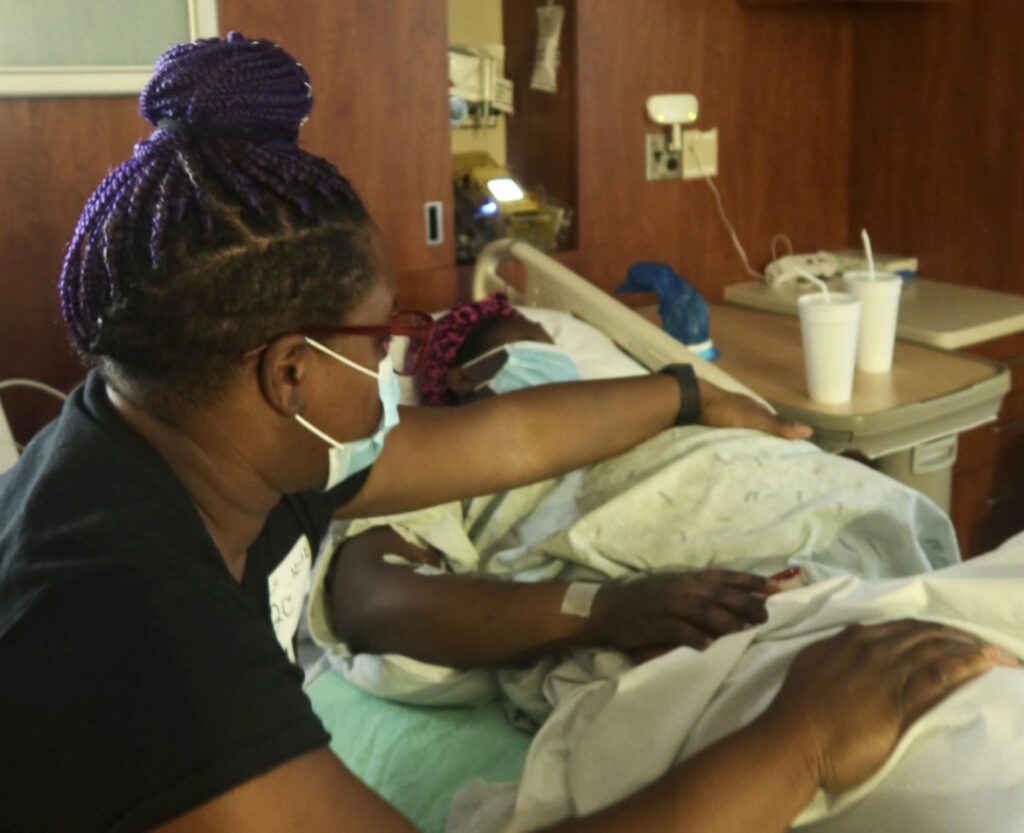In April of 2020, Baxter Community Center was awarded a grant of $90,000 over three years to pilot a community-based doula program. The doula program will train and certify women of color as doulas with the hope of closing the health disparity gap among Kent County infants. The doulas will have shared the same lived experience as the families they support to help them navigate pregnancy, birth, and postpartum experiences and the possible discrimination they may face in the health care system that leads to the disparity in healthy births for women of color. The program will build a talent pipeline of women trained as doulas for local health care systems and/or as independent practitioners, further increasing opportunities for families to thrive.
Women of Color, particularly black women, face numerous barriers to healthy births which include poorer quality of care and, at times, denial of care when they seek help for pain or complications during pregnancy. They also are at higher risk for a variety of medical conditions — pre-eclampsia, eclampsia, and embolisms – that could threaten the lives of both mother and child during pregnancy. Doulas will act as trusted resources to expectant mothers by:
- Performing home visits;
- Providing breastfeeding and wellness support;
- Connecting women to additional social services;
- Delivering prenatal and postnatal support to ensure women are well cared for, their voices are heard, and their health needs are addressed.
Baxter will utilize the curriculum of HealthConnect One, an evidence-based, culturally responsive, and innovative solution to promote birth equity for Women of Color. HealthConnect One will provide technical assistance for the program, and doulas in the program will be paid a stipend throughout their 20-week training to reduce financial barriers to growing the talent pipeline. Baxter has built links with partner agencies to connect doulas to long-term employment and other resources to ensure they find viable career opportunities following completion of the program.
We’re excited to support this community-based approach to building the Doulas of Color pipeline while improving outcomes for women and children now and in the future.
